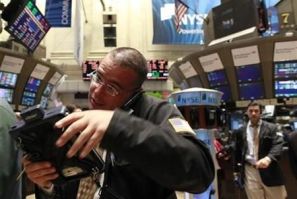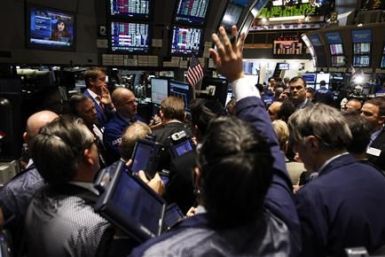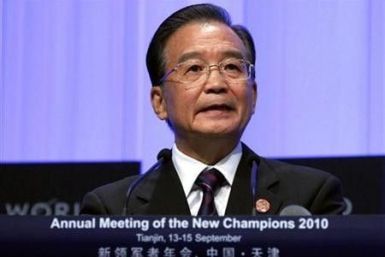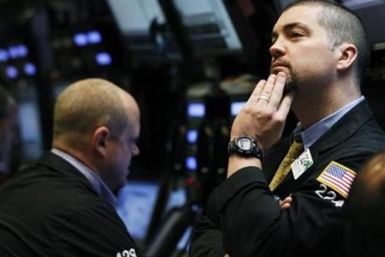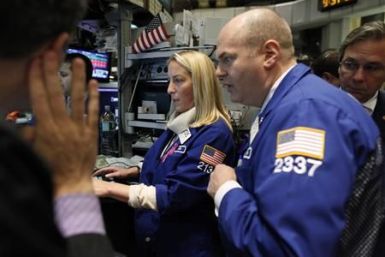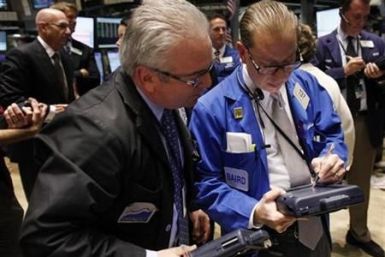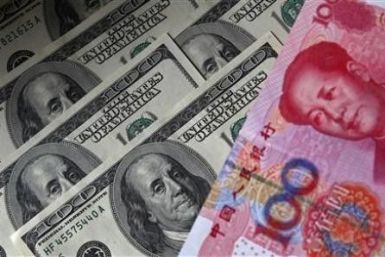Futures on the S&P 500 gained 3.50 points, futures on the Dow Jones Industrial Average are up 23 points and Nasdaq100 futures are up 7 points.
The US dollar dropped against its major counterparts on Wednesday after data showed October consumer price inflation was slower than expected with housing starts data for the same month also coming in at a weaker-than-expected level.
U.S. consumer prices rose lower than expected in October mainly driven by a rise in gasoline prices.
Commodities slid across the board on Wednesday on fresh signals from China that it will soon raise rates with lingering Euro area debt woes also helping keep investors away from risky assets. Gold and silver traded near their 2-week lows while copper and platinum fell to their lowest since late September. Also, December and January crude fell to its lowest since Oct. 29.
Chinese consumer confidence fell in the third quarter, recording a drop for the first time in six quarters, amid growing inflation concerns.
Members of Bank of England's (BoE) policy panel continue to be split three ways over new policies to contain inflation and spur growth, according to the minutes released by the Monetary Policy Committee on Wednesday.
The Federal Reserve is likely to spend the entire $600 billion allocated for the second round of quantitative easing (QE2) and is open to a third round (QE3) if the economy performs worse than expected.
U.S. stocks are sliding on fears over inflation in Asia and the growing likelihood that Ireland’s battered economy may need a cash bailout from the European Union (EU).
William Dudley, president of the New York Federal Reserve, downplayed the charge that the Federal Reserve is monetizing U.S. government debt. The Fed is accused of doing so because it is engaged in quantitative easing.
S&P 500 Index is down 10.42 points, or 0.85 percent, to trade at 1,187.57 at 09:53 a.m. EDT. The Dow Jones Industrial Average lost 99.57 points, or 0.89 percent, to trade at 11,102.40. The Nasdaq Composite Index fell 0.72 percent.
The producer price index for finished goods rose for the fourth consecutive month in October, mainly pushed by gas price hikes, the U.S. Labor Department said in a report.
Futures on the S&P 500 are down 0.49 percent, futures on the Dow Jones Industrial Average lost 0.55 percent and Nasdaq100 futures are down 0.73 percent.
The Bank of Korea raised a key policy rate by 25 basis points as the central bank's focus shifted from unchecked inflows of foreign funds to rising inflation.
Futures on major U.S. stock indices point to lower opening on Tuesday, with futures on the S&P 500 down 0.59 percent, futures on the Dow Jones Industrial Average down 0.54 percent and Nasdaq100 futures down 0.75 percent.
Annual inflation in the European Union rose during October, for both the euro area and the EU, according to a report by the Eurostat, the statistical office of the European Union
Inflation in the U.K. rose during October, mainly pushed by fuel and lubricant prices, a report by the U.K. Office for National Statistics.
US dollar strengthened across the board on Monday on expectations of good data signaling recovery, but investors are also cautious that any negative surprise could trigger market worries about more bond buyback by the Fed, sparking off the quantitative easing (QE3) talks.
India's annual rate of inflation, based on monthly wholesale price index (WPI), marginally declined to 8.58 percent for the month of October 2010 as compared to 8.62 percent for the previous month and 1.48 percent during the corresponding month of the previous year, according to a government statement on Monday.
World Bank President Robert Zoellick is the most high-profile person in recent history to bring up the gold standard. However, his endorsement was almost universally dismissed as too archaic and impractical.
Gold registered new all-time highs over and over again in the past few weeks and hit a record high of $1424.30 on Tuesday as investors stepped up buying the yellow metal as an effective tool to avoid the risks of inflation and the uncertainties in the global economy.
The dust of G-20 has settled. World leaders sat around a large table set this time in South Korea, searched for that magic wand in their suit pockets, and then looked at each other's face with disappointment. They didn't get one to 'calm down' the emerging fears of a 'world war' on trade and currencies. They did not 'direct' China and/or US as some hoped.
U.S. stocks fell in early trade on Friday as speculation over interest rate hike in China and concerns about euro-zone sovereign debt weighed on the sentiment.







